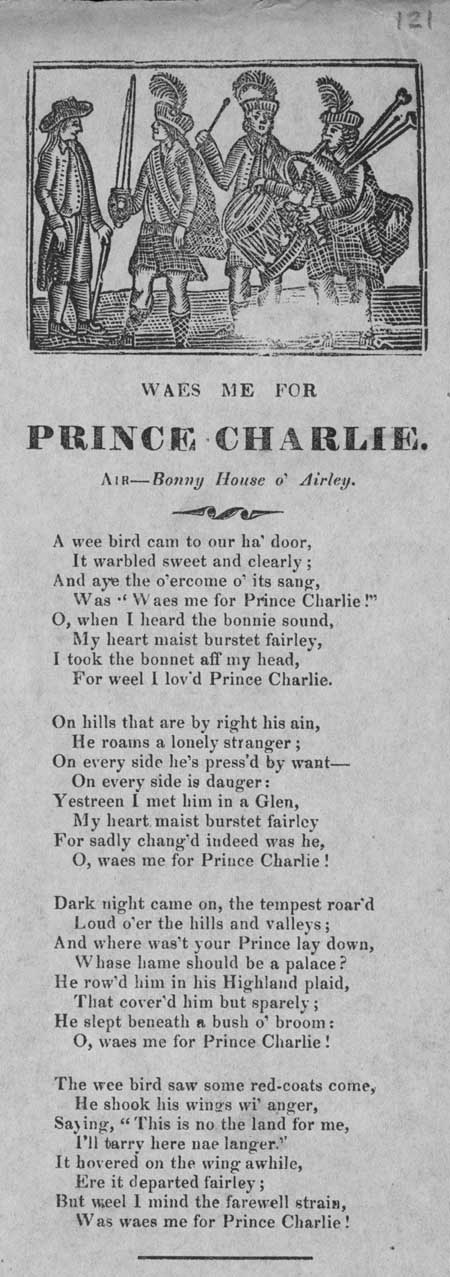Commentary
The ballad begins: 'A wee bird cam to our ha' door, / It warbled sweet and clearly; / And aye the o'ercome o' its sang, / Was "Waes me for Prince Charlie"!' A note under the title states that the lyrics should be sung to the famous air, 'Bonny House o' Airley', which was a traditional Jacobite song. The word 'waes' means 'woes'. Unfortunately, no publication details are included on the sheet. Illustrated with a woodcut of Jacobite soldiers, this ballad is dedicated to Charles Edward Stewart, 'Bonnie Prince Charlie' (1720-88), as he flees the redcoats following the Battle of Culloden. The writer imagines the indignities inflicted upon the would-be king, as he is forced to sleep among the heather of the Highlands, and contrasts his current abode with the palace in which he should be residing. The bird that appears in the ballad could be a symbol for Prince Charlie, since 'the king o'er the water' was often referred to as various types of bird by supportive writers and poets who wished to avoid being denounced as Jacobite sympathisers. Early ballads were dramatic or humorous narrative songs derived from folk culture that predated printing. Originally perpetuated by word of mouth, many ballads survive because they were recorded on broadsides. Musical notation was rarely printed, as tunes were usually established favourites. The term 'ballad' eventually applied more broadly to any kind of topical or popular verse.
View Transcription | Download PDF Facsimile
|
 |
Probable period of publication:
1860-1890 shelfmark: L.C.Fol.178.A.2(121)
 View larger image
View larger image
|


